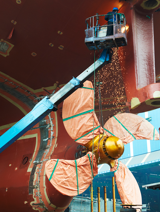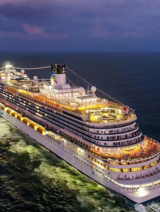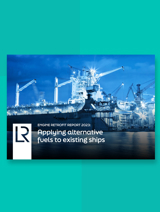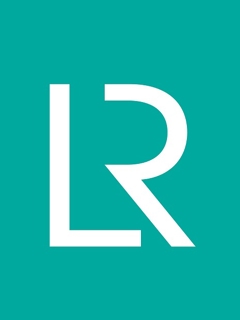Maritime will spend $931 million on artificial intelligence solutions in 2022, with the figure set to more than double in the next five years to $2.7 billion.
These figures – from Thetius ‘The Learning Curve, the state of artificial intelligence in maritime’ forecast just how rapid the pace of AI adoption is across the board. Along with the rapid implementation, the addition of AI to the array of digital technologies in the maritime economy will no doubt accelerate the ongoing digitalisation process.
With affordable AI solutions, maritime can make more informed decisions that prioritise safety. GTT’s power solution, recently awarded approval in principle by LR, is one of the many new AI applications in the market. The technology can be used to plan offshore operations and regasification in a safer way, with heading data, sloshing analysis and three-day weather updates utilising the application to ensure safety at sea.
Along with their safety benefits, these latest state-of-the-art digital and AI-enabled products will help organisations deliver unprecedented operational gains. They can make remote data collection easier and can be used to fast-track affordable compliance, making businesses more competitive.

AI to certify AI
While the data from Thetius’ report suggests that first movers are investing significant amounts in new maritime applications, the industry must still incentivise the majority by making AI certification more accessible.
A case in point is Furuno Hellas’ new HermAce Voyage Data Recorder (VDR), which was awarded Digital Twin certification by LR after an extensive testing and analysis process. This was the first verification review carried out by a classification society of a digital twin specifically designed for this purpose.
Furuno’s unique VDR digital twin provides equivalence to the traditional functional testing and troubleshooting performed during the VDR annual performance test, showcasing how digital applications can offer economical alternatives to annual performance testing.
As part of a collaboration between the Alan Turing Institute and Lloyd’s Register, LR used the Turing institute’s AQ live tools for the analysis and testing of the software.
AQ live’s use in the compliance process helped to fast-track certification. It’s an example of how AI itself can make certification and compliance cost-effective for the very AI technology it is testing.
LR’s Artificial Intelligence Register
With the advancement of Artificial Intelligence, the maritime industry has seen a growth in novel AI applications. The danger, however, has always been that a lack of information and guidance around the new solutions and software providers, could result in maritime stakeholders being forced to run the risk of investing in untested technology.
To help reduce the risk for first movers, LR pioneered the industry first ‘Artificial Intelligence Register’ in 2021. Each AI solution entered into the AI Register is categorised against their LR certification status, such as Digital Twin Ready, Digital Twin Approved, Digital Twin Commissioned and Digital Twin Live from LR’s ShipRight Digital Compliance framework.
The AI Register provides details about what the specific solution offers, such as key business benefits, target applications, functions, and performance. AI providers can also use the Register to assess existing technology and solutions across the market.
The AI Register has already seen providers utilise the register to showcase their software. Currently the register contains a number of certified technology providers including Furuno Hellas, who appear in the register with their HermAce VDR digital twin, Korea Shipbuilding & Offshore Engineering (KSOE), Samsung Heavy Industries (SHI), Hyundai Heavy Industries (HHI) and ZhenDui Industrial Artificial Intelligence (ZDIAI).
Find out more about LR's Artificial Intelligence Register here.

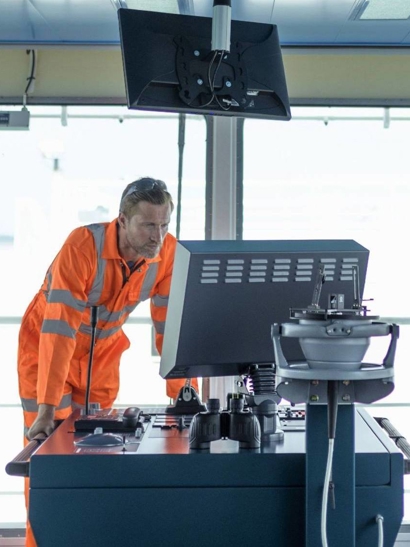
Case Study: LR and the Alan Turing Institute collaborate on Furuno Hellas certification
The AQ live tools allowed the testing process for Furuno’s HermAce to conduct over 1500 evaluation and test cases to prove that the VDR digital twin can monitor a physical VDR under normal, abnormal and failure operating conditions, in addition to substantiating its effectiveness as an alternative to the VDR annual performance testing.
LR and the Turing Institute’s collaboration could be a precursor of the future of digital class. It lays the groundwork for delivering more assurance of AI technology services, allowing for the necessary learning to create the requirements and standards demanded by the industry.
By pooling resources, the collaboration supports and accelerates the industry’s digitalisation journey. By revolutionising the digital classification process, organisations adopting it are more competitive and can find easier, simpler paths to accelerate their compliance with their sustainability goals.



